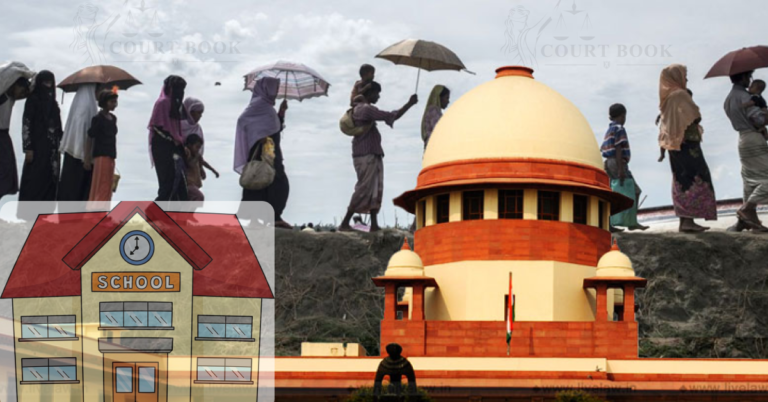A public interest litigation (PIL) has been filed in the Supreme Court requesting school admissions and government benefits for Rohingya refugee families. The plea urges authorities not to insist on Aadhaar cards or citizenship status as a requirement for these services.
Court Hearing and Case Proceedings
The case was listed before a bench comprising Justices Surya Kant and N Kotiswar Singh. The Court has scheduled the next hearing for February 10 and has asked the petitioner to submit details regarding the residential status of Rohingya refugee families in India.
Senior Advocate Colin Gonsalves, representing the petitioner, informed the Court that the PIL seeks directions to:
- Allow all Rohingya children to receive free school education, regardless of their family's possession of an Aadhaar card.
- Enable Rohingya children to participate in exams such as 10th, 12th, and graduation without Aadhaar-related restrictions.
During the hearing, Gonsalves highlighted the difficulties faced by Rohingya refugees. He pointed out that since they are refugees, they do not possess Aadhaar cards, which prevents them from accessing education, healthcare, and other public services. He argued that Rohingya children are denied entry into schools and are barred from taking exams.
Read Also:- Gauhati High Court Seeks Answers from Arunachal Pradesh Govt on State Human Rights Commission Issues
The PIL further demands that Rohingya refugees be granted access to:
- Free healthcare in government hospitals.
- Subsidized food through the Public Distribution System (PDS) similar to the Antyodaya Anna Yojana beneficiaries.
- Benefits under the Food Security Act, 2013, including services at Aanganwadi centers.
Gonsalves also referred to the government’s previous stance, where it acknowledged that Rohingya refugees have the right to access public schools and hospitals.
Supreme Court's Observations
During the hearing, Justice Surya Kant questioned why the petitioner had approached the Supreme Court instead of the Delhi High Court, considering that the case primarily concerns Delhi. Gonsalves responded that similar petitions are already pending before the Supreme Court, and counter-affidavits have been filed.
When asked about the locations where Rohingya refugee families are residing, Gonsalves informed the Court that in Delhi, they live in areas like:
- Shaheen Bagh
- Kalindi Kunj
- Khajuri Khas
He clarified that some of them live in slums, while others reside in rented accommodations.
Read Also:- Delhi HC Denies Bail in PMLA Case Linked to Spurious Anti-Cancer Drug Syndicate
Rohingya Refugee Status and UNHCR Cards
The Court sought clarification on whether the petition specifically addressed Rohingya refugees with UNHCR (United Nations High Commissioner for Refugees) cards. Gonsalves explained that Rohingyas with UNHCR cards are classified as refugees and are permitted to stay in different parts of India, including Hyderabad and Jammu.
However, the Court noted that the petition lacked specific details on the residential status of Rohingya families in Delhi. Justice Kant emphasized that a proper assessment of their residential status is crucial as it determines their right to education. He further stated that even if the children reside in refugee camps, they must receive education, though the method of implementation may differ.
Read Also:- Bombay High Court Disposes Suo Motu PIL on Maharashtra’s Cluster School Policy, Leaves Decision to State
The Court has adjourned the matter to allow the petitioner to provide additional information about the residential status of Rohingya families in Delhi. The next hearing is scheduled for February 10.
Case Title: ROHINGYA HUMAN RIGHTS INITIATIVE (ROHRINGYA) AND ORS. vs. GOVERNMENT OF NCT OF DELHI AND ORS. (W.P.(C) No. 57/2025)
"The Supreme Court's decision on this PIL could have significant implications for the education and welfare of Rohingya refugees in India."













